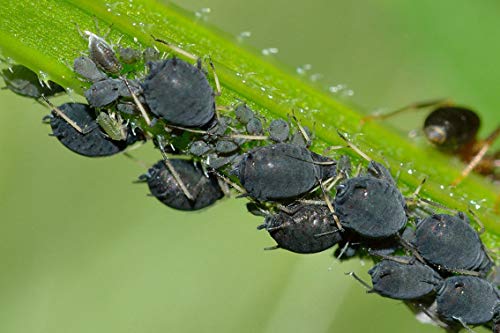A treat for humans, sugar can be deadly to aphids.
Agricultural researchers at Cornell University are exploiting this vulnerability as an insecticide-free way to control insect pests. They are genetically engineering plants to protect themselves by increasing the sugar in their sap.
Aphids and their relatives feed directly on the plant's phloem sap, the system that carries water and nutrients within the plant. Because the phloem is very sweet -- about twice as sweet as grape juice -- they require adaptive mechanisms to prevent them from dehydrating while feeding.
The researchers are identifying genes in aphids that modify and transport sugars as well as the genes that control their water transport. They are modifying plants to produce double-stranded RNA of the targeted insect genes, thereby enabling them to turn off these crucial genes in the feeding insects.
When the plant expresses the insect gene, the RNA 'blueprint' for the corresponding protein will be produced in the phloem where the insect feeds. The insect's system interprets the RNA as an invader and blocks the expression of that gene sequence, which blocks production of the corresponding protein.
This technique is called RNA interference (RNAi) or gene silencing. The method is being tested on the peach-potato aphid, the sweet potato whitefly and the potato psyllid - all important carriers of crop diseases. The researchers expect to see the insects dehydrate and die.
If the approach works well, it will open up new avenues to battle plant viruses, which are notoriously difficult to control, as well as other insect-spread diseases, including the citrus greening epidemic threatening the Florida citrus industry.
